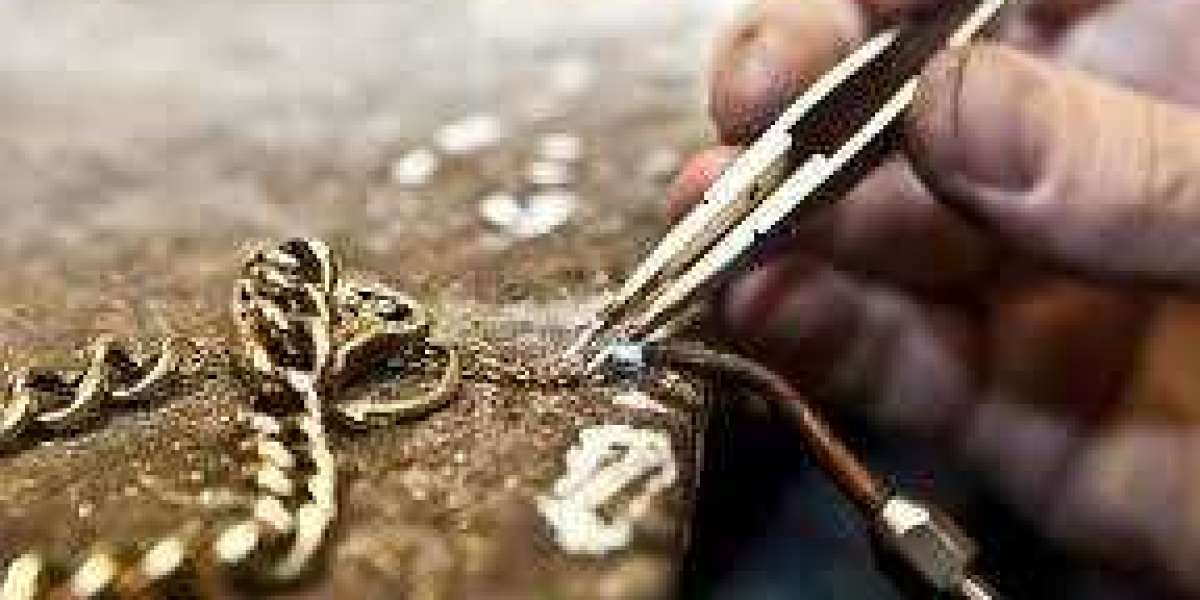Jewellery valuations are an essential service for anyone who owns valuable jewellery, whether it’s an engagement ring, a family heirloom, or a collection of pieces accumulated over time. Valuations provide an accurate assessment of a jewellery item’s worth, which can be critical for insurance, resale, inheritance, and even sentimental reasons. Understanding the importance and process of jewellery valuations is crucial for ensuring your valuables are appropriately protected and accurately represented. This article delves into the reasons behind jewellery valuations, the types available, and what to expect when you have your jewellery appraised.
Why Jewellery Valuations Are Important
Jewellery valuations offer a clear, documented value of an item, which is helpful in various situations. One of the main reasons people seek valuations is for insurance purposes. In the unfortunate event of loss, theft, or damage, having a valuation means you can claim back the item’s true value from your insurance provider. Insurance companies typically require a recent valuation to process claims on high-value items, especially if they’re irreplaceable or hard to find.
Valuations are also valuable for resale purposes. If you intend to sell a piece of jewellery, knowing its true market value ensures you receive a fair price. Without an accurate valuation, there’s a risk of underestimating the item’s worth, which can result in a loss for the seller. Additionally, valuations play an essential role in inheritance and estate planning. Knowing the value of jewellery items can help in dividing assets fairly among heirs or beneficiaries, reducing potential disputes.
Another reason to obtain a jewellery valuation is for sentimental value. Knowing the worth of a family heirloom or a beloved piece can add to its personal significance, especially if it’s passed down through generations. A valuation document can tell the story of an item, providing information about its history, material composition, and approximate age, adding depth to its sentimental importance.
Types of Jewellery Valuations
There are several types of jewellery valuations, each serving a specific purpose. Understanding the differences can help you choose the one that best meets your needs:
1. Insurance Valuation
An insurance valuation is the most common type. It provides an estimated replacement value of the jewellery, based on current market conditions. This valuation is higher than what you might get if you sold the piece, as it’s meant to cover the cost of replacing the item if it’s lost or stolen. Insurance companies typically recommend updating these valuations every three to five years to account for market fluctuations.
2. Probate Valuation
Probate valuations are used to determine the value of an estate’s assets for inheritance tax purposes. This type of valuation is usually lower than an insurance valuation, as it’s based on the resale value rather than the replacement cost. Probate valuations provide a realistic figure that reflects what the jewellery would sell for in the open market, helping to settle estates and divide assets fairly.
3. Resale or Market Valuation
If you’re looking to sell a piece of jewellery, a resale valuation can help. This type of valuation provides an estimate of what the jewellery would fetch on the open market. It considers factors such as condition, demand, and current market trends. This valuation is typically lower than an insurance valuation, as it’s based on what buyers are willing to pay rather than replacement costs.
4. Divorce or Equitable Distribution Valuation
In situations of divorce or asset division, jewellery valuations can be helpful for determining the value of items so they can be divided fairly. This valuation considers the resale value rather than the insurance replacement value, providing an equitable assessment that reflects the actual worth of each piece.
5. Auction Valuation
For those considering selling jewellery through an auction house, an auction valuation is beneficial. This type of valuation provides an estimate of what the item may fetch at auction, taking into account the current demand and market conditions. Auction valuations can be higher or lower than resale values, depending on the popularity of the piece and the target audience at the auction.
What to Expect During a Jewellery Valuation
When you take your jewellery for a valuation, it’s essential to understand the process. A reputable valuer will start by examining the piece closely, considering factors such as metal type, gemstone quality, craftsmanship, and overall condition. They may use magnifying tools, scales, and measurement instruments to determine details like weight, carat, and clarity. These assessments are essential for accurate valuations, especially for high-value items with precious gemstones or intricate designs.
After the examination, the valuer will provide a detailed valuation report. This document includes essential information about the jewellery, such as its description, measurements, gemstone details, and the estimated value based on the purpose of the valuation. A good valuation report is not only useful for insurance claims or resale but also adds to the jewellery’s documentation, making it easier to prove ownership and value if it’s lost or stolen.
How Often Should You Get a Jewellery Valuation?
The value of jewellery can fluctuate over time due to changes in the price of precious metals and gemstones, market demand, and fashion trends. Therefore, it’s wise to have your jewellery re-valued every three to five years, especially if it’s for insurance purposes. Regular updates ensure that the valuation reflects current market conditions, giving you accurate coverage if you need to file an insurance claim.
For probate, auction, or resale purposes, valuations may only be necessary once, depending on your intentions with the jewellery. However, for items you intend to pass down or keep for life, it’s still beneficial to update valuations periodically to maintain an accurate record.
Choosing a Professional Jewellery Valuer
Selecting a reputable, qualified jewellery valuer is essential for obtaining an accurate assessment. Look for valuers who are registered with professional bodies such as the Institute of Registered Valuers (IRV) or the Gemmological Association of Great Britain (Gem-A). These organisations ensure their members adhere to high standards of professionalism and expertise. A certified valuer will have the skills and experience to accurately assess and value jewellery, providing a reliable report you can trust.
When choosing a valuer, consider their experience and specialisation. Some valuers specialise in antique jewellery, while others focus on contemporary pieces or specific gemstones. If your jewellery includes rare or unusual stones, choosing a valuer with expertise in that area ensures you receive an informed and accurate assessment.
How Jewellery Valuations Benefit You
A professional jewellery valuation offers peace of mind, knowing that your valuable items are adequately protected and that you have a reliable record of their worth. This documentation is invaluable if you ever need to make an insurance claim, sell the jewellery, or distribute it in an inheritance.
Moreover, valuations provide transparency and fairness in situations where jewellery is divided among family members or spouses. Knowing the true value of each piece ensures equitable distribution, reducing potential disputes. For high-value pieces, such as engagement rings or heirlooms, a valuation offers clarity, preventing future misunderstandings or discrepancies over the jewellery’s worth.
Protecting Your Jewellery After a Valuation
Once you’ve had your jewellery valued, it’s essential to keep the valuation document safe. Consider storing it in a secure location, such as a home safe or a digital vault, where it’s easily accessible if you need it. Additionally, make sure to update your insurance provider with the latest valuation to ensure full coverage. If you own multiple pieces of valuable jewellery, some insurance policies offer blanket coverage, while others may require individual listing, especially for high-value items. Be sure to clarify with your insurer to ensure proper protection.
For heirloom or sentimental pieces, consider providing copies of the valuation to trusted family members or executors. This can simplify inheritance and ensure that future generations have a record of the item’s value and history.
Conclusion
Jewellery valuations provide an invaluable service, offering an accurate assessment of your jewellery’s worth for insurance, resale, probate, and sentimental reasons. By understanding the types of valuations available, you can make informed decisions that protect your jewellery and provide peace of mind. Regular valuations ensure that you remain up-to-date with market changes, giving you accurate documentation that supports insurance claims, estate planning, or resale efforts. Choosing a qualified, experienced valuer guarantees that your valuation is reliable and professional, providing a lasting record of your precious items’ true worth.


